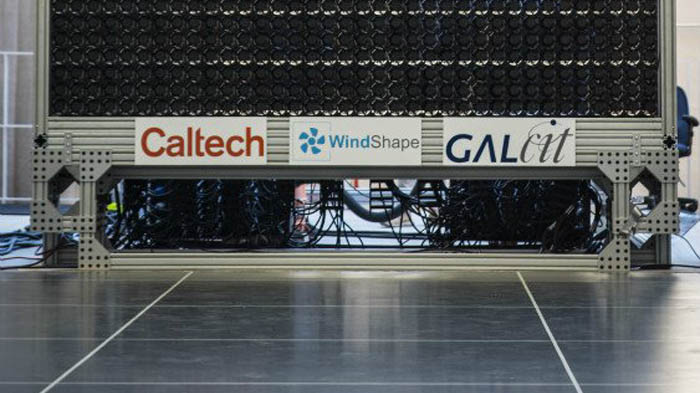
What you need to know:
- Verizon brings 5G Ultra Wideband and mobile edge computing to the Caltech Center for Autonomous Systems and Technologies (CAST).
- Researchers are testing how 5G, mobile edge compute and artificial intelligence can help drones detect, interpret and respond to changing weather conditions in real time.
- To recreate changing environmental conditions, the lab features a three-story-tall aerodrome with more than 2,500 tiny computer-controlled fans that allow simulation of everything from a light gust to a gale.
NEW YORK – Engineers are exploring how Verizon 5G Ultra Wideband, mobile edge compute and artificial intelligence (AI) can help drones detect, interpret and respond to changing weather conditions in real time. Verizon deployed its 5G Ultra Wideband network and edge compute platform at the Caltech Center for Autonomous Systems and Technologies (CAST). Researchers are currently testing how the low latency, high speeds and massive capacity of 5G and edge compute can be used to offload the heavy computing hardware that AI usually requires from a drone to the edge of the network, allowing for near real-time interpretation of weather data and near instantaneous in-flight adjustments.
To recreate the ever-shifting environmental conditions that drones face in the real world, the lab features a three-story-tall aerodrome with more than 2,500 tiny computer-controlled fans that allow engineers to simulate everything from a light gust to a gale. It can also be tilted 90 degrees to simulate vertical take offs and landings. The custom fan wall, designed and built by Caltech graduate students, was also used as the blueprint for building the fan wall that tested the Mars Ingenuity helicopter at JPL, which Caltech manages for NASA. Verizon is providing funding for the one-year drone research project, as well as, several 5G devices and consultation on 5G technology and hardware.
“By collaborating with CAST researchers, we hope to accelerate the innovation process and development of unmanned aerial vehicles that can autonomously navigate using 5G, edge compute and AI,” said Nicki Palmer, Chief Product Development Officer at Verizon. “This research project is just the tip of the iceberg of what we hope to see tested. The facility and areas of exploration that CAST is working on represent the types of use cases that 5G can really take to the next level.”
This engagement is part of Verizon’s broader strategy to partner with enterprises, startups, universities, national labs and government/military to explore how 5G can disrupt and transform nearly every industry. Verizon operates five 5G Labs in the U.S. and one in London that specialize in developing use cases in industries ranging from healthcare to public safety to entertainment. In addition, Verizon is collaborating with several customers to establish 5G Innovation Hubs on-premises as part of an ongoing initiative to co-innovate and create new 5G applications.
PR Archives: Latest, By Company, By Date